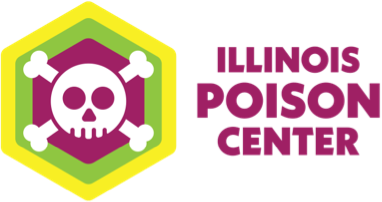Summer Safety
Hydrocarbons
Lamps or Tiki torch oil used to light up the backyard or picnic area can be hazardous. Keep away from children. Even a few drops introduced into the airway can produce severe chemical pneumonia requiring hospital treatment. These oils are often pleasantly scented and/or colored and are stored in containers resembling drink bottles. Always keep these products in their original container and locked up away from children.
Self-lighting charcoal and lighter fluid are dangerous products when aspirated (taken into the lungs). They are considered hydrocarbons, which can coat the lungs and create serious respiratory problems and, potentially, lead to death. Charcoal can pose a choking hazard.
Fireworks
Common fireworks such as firecrackers, sparklers, black snakes, bottle rockets, etc., generally contain chemicals which can be toxic in large quantities. However, accidental tastes or licks generally do not result in any serious problems. The bigger danger is the risk of traumatic explosion injury or burns with these items. We strongly recommend calling IPC for exposure to any of these, in order to get product specific recommendations.
Pool Chemicals
- Read and follow all directions on the label. Remember that some products come as a concentrate and need to be diluted before use.
- Use these products in a well-ventilated area and keep your kids and pets away during application. It’s also a good idea to wash your hands and change your clothes after using these products.
- Always store these potentially dangerous chemicals in their original containers. Keep them in a locked cabinet or shed, away from children and never near food or drinks.
Heat Stroke
Certain medications can make people more susceptible to injury from excessive heat; injury that can lead to organ damage and even death (e.g. heat stroke).
Heat stroke can have many symptoms, among them:
- high body temperature,
- the absence of sweating, with hot red or flushed dry skin,
- rapid pulse,
- difficulty breathing,
- strange behavior,
- hallucinations,
- confusion,
- agitation,
- disorientation,
- seizure
- and coma.
People who are most susceptible to heat stroke include:
- infants,
- elderly
- athletes (e.g. football players in full gear at camp)
- people who work outside and physically exert themselves under the sun.
- Individuals taking certain taking medications that make them vulnerable to dehydration and heat strokes
Medications that can impair the body’s ability to respond to external heat and cool off include:
- Antihistamines and anticholinergic drugs such as those in sinus, allergy, and cough and cold preparations can reduce the body’s ability to sweat. This impairs heat dissipation and can increase the possibility of heat stroke
- Antipsychotic medications can impair the body’s ability to regulate its internal temperature through their effects at the thermoregulatory center in the hypothalamus. Some anti-psychotic medications also have anticholinergic properties which can make heat stroke more likely.
- Certain cardiac medications like beta blockers and calcium channel blockers decrease the shunting of blood to the skin so the ability to shed heat is impaired.
- Stimulant medication and drugs such as ephedrine, amphetamines or cocaine increase metabolism and increase internal body temperature. They also can constrict blood vessels, which then decreases the amount of heat that can be released through the skin.
Preventing heat stroke however is easy, but it does take being aware that it can happen and knowing the steps to take.
- When working or playing sports outside, take frequent breaks in cooler, shaded areas.
- Avoid becoming dehydrated. Drink plenty of fluids, even if you’re not thirsty.
- Avoid caffeinated or alcoholic beverages as this will increase water excretion through the kidneys.
- Wear cool, light-colored clothing.
- Air-conditioning is the best way to avoid heat stroke during hot summer spells. If you do not have access to air-conditioning, know where the public community cooling centers are located. These are frequently shopping malls, libraries and other public places to seek refuge from extreme heat.
To help avoid heat stroke in others, check up on those who may be isolated and at risk for heat related illness such as the elderly or mentally ill in your community.
